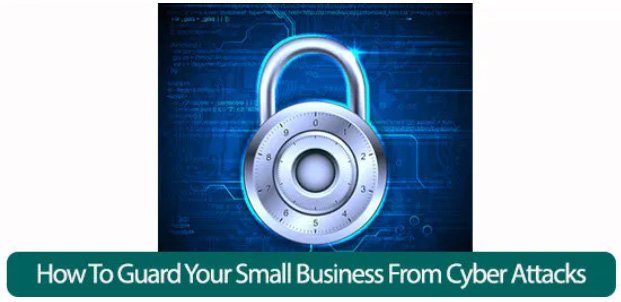The costs experienced by U.S. businesses from cyberattacks each year has reached $140 billion, Forbes reports. Every business needs to protect their digital assets, but the small business owner may not have the budget or human power for sophisticated cybersecurity. These tips will help any business, including the smallest, prevent computer attacks.
Implement Better Passwords
One of the favorite, and easiest ways, cyber criminals break into companies is by guessing passwords. People still use “weak” passwords for their logins. These passwords are easiest to break and are often made up of pieces of personal information, such as:
- Your name
- Your spouse and kid’s names
- Your pets’ names
- Birthdays
- Social security numbers
Passwords derived from this information are not only easy to remember, but they’re also easier for cyber thieves to crack. To slow down or prevent break-ins, implement mandatory strong passwords. These consists of a random mixture of upper and lower case letters, numbers and special characters. The password “d1#F0&x4″ is much harder for a thief to guess than “Janice12.”
Educate Your Staff
Training your staff is a key way to prevent cyberattacks, because your employees are one way unwanted viruses, malware and spyware get into your system. People receive unfamiliar emails from outside of the company and open them. They save email attachments to the system and run them. The P2P file sharing threat is there, as people connect with other systems and exchange files. The more your staff knows about these dangers, the more careful they can be.
Accessing unfamiliar websites also puts the company at risk with the various ways hackers can use them to break into your system. Teach your staff about the latest hacking, phishing and malware techniques, so they can be on the lookout for suspicious sites. For example, sites with expired security certificates should never be accessed, unless an IT person first checks the site for authenticity. These can be pirate sites that will try to load malware onto your computer if you access it.
A Little Protection Is Better Than None
Make sure each computer has a virus protection program running on it with regularly scheduled scans. These programs need to check websites accessed, files downloaded from websites, incoming email and any attachments to the emails. These programs can be free or cost hundreds of dollars. Any protection is better than none, so even the most frugal small business can implement something on its computers.
Encrypt Your Data
Protecting your company’s information as it moves across the Internet is just as important as protecting it within your system. The use of data encryption keeps your data unreadable as it goes out of the company. Cyber thieves who use packet-sniffing techniques may be able to collect your data, but they can’t read it. You can encrypt the data on your hard disks, or in the cloud, as well. Software encryption programs are available to encrypt almost any type of data in your business.
The Personal Device Dilemma
The bring-your-own-device (BYOD) model opens businesses up to more risk from cyber attacks. People enjoy using their own laptops, smartphones and tablets to do their jobs, but you will need to impose some controls to keep your company safe. A mobile device management (MDM) solution allows different devices to access your computer system. But it also monitors their activity, controls their access to company information and restricts the types of applications used.
Kevin Norvell
Web Project Manager

